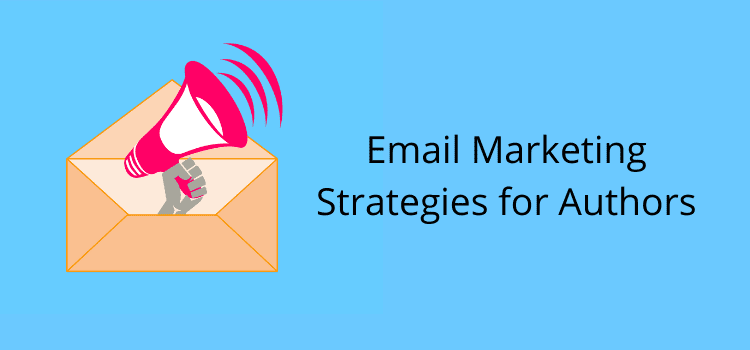
It’s no secret that most authors dread marketing and book promotion.
Writing a book is a solitary endeavor of transforming your thoughts into words. Marketing, however, is the antithesis, as you need to interact and communicate with a large number of people.
While not necessarily introverts, many writers and authors still find it uncomfortable to promote themselves, especially online.
That’s no surprise, given that in recent years, an active online presence can attract unwanted or even unpleasant attention.
Book marketing is not book promotion
Have you noticed that many articles about writing, publishing, and self-publishing are written by people with a background in marketing?
You can tell because persuasive writing is one of the first skills a good marketer learns.
Another interesting observation is that the topics they write about are to support the marketing of a product or service they are promoting.
Most of the articles I read about how authors can overcome the fear of book marketing were on sites selling services to writers and authors.
Some were vanity publishers or assisted self-publishing services, while others promoted premium online writing or publishing tools.
However, the majority of the articles contained the same repetitive advice: having a website, writing blog posts, using social media, writing guest posts, and giving interviews.
But these are book promotion elements, not book marketing.
From my experience, they worked well to some degree ten years ago, but are mostly a waste of time and energy today.
That’s not to say that they aren’t helpful in some ways. I have given the same advice in some of my articles on book promotion over the years. But for the amount of time you need to invest, they don’t bring in a lot of book sales now.
If you are new to publishing or self-publishing, you want to sell copies of your book. But what book marketing works and what doesn’t?
Take a reality check before you publish
If you have expectations about your book being the next bestseller, take a moment to consider the realities of the book market today.
According to a study by Berrett-Koehler Publishers, in 2005, 282,500 new titles were published. However, fast-forward to 2023, and the estimate was 3 million new traditionally published and self-published titles.
On the other side of the equation, book industry revenues, adjusted for inflation, declined by 38 percent between 2000 and 2022. Part of this decline is possibly due to the low selling prices and popularity of ebooks.
It leaves no doubt that the book market, which generates income from book buyers, is declining.
Simply put, there are now far too many new books for a shrinking book market to absorb.
But when you look at the bestsellers on Amazon, you can see that some authors are winning with excellent book marketing.
However, the top books represent only a tiny, small, minuscule percentage of new books published.
Even then, the successes can be so short-lived.
Remember the book Spare by Prince Harry? It broke all records for first-day sales. But then it crashed and burned. So, where is it now? Even second-hand bookstores don’t want more copies of it.
But this is symptomatic of all new books. They only have the chance to sell well for a very short period. After a few weeks, or perhaps a few months, newer titles arrive to take their place.
When you think about how you can market and promote your new book, keep this tough fact in mind. Your chances of success depend on what you can achieve in the few short days and weeks after you publish your new book.
I don’t like to give, do as I say, or do as I do advice. But I have had a handful of reasonable successes, along with many failures, by the way.
But the successes had a few things in common.
And they were all about what I did before I published.
Effective book marketing is about what you do before you publish
Okay, if you are like me and many other authors, you dread the thought of book marketing because you think it means exposing yourself to thousands of people on social media or online.
But that doesn’t need to be the case.
The key ingredients for a book to stand a chance of success have nothing to do with thousands of social media posts or hundreds of blog posts.
Here are the vital marketing elements I consider essential for a potentially successful book.
1. A brilliantly written and well-edited manuscript that readers will find worth reading.
2. An eye-catching cover that is tailored to its genre.
3. It is listed in the correct and best three categories and seven search keywords on Amazon or other retailers.
4. It gains sales on the first and the following few days.
5. It gets reviews either prior to release or at least in the first few days after.
None of the points above are simple or easy to accomplish. But the one positive is that you can control all of them.
When I look back on my successes and failures, the successes came from doing a lot of hard grind before I published a title.
The last two items on the list are vital.
You really need to beg, plead, cajole, convince, and arm-twist everyone you know to help you with reviews.
Give them a box of chocolates, a bunch of flowers, or a lottery ticket in return for promising to buy your book and leave a review.
The big publishers have organized teams of thousands of advanced readers and reviewers to do this, but you don’t.
However, if you can get perhaps fifty sales and reviews within the first week after you publish, you can achieve some success.
The one thing to know about books is that the more sales you get, the more book reviews you get. And the more book reviews you get, the more book sales you get.
But it’s a short-lived cycle for a new book. That’s why you have to get things moving from day one.
What’s the difference between marketing and promotion?

In a nutshell, marketing is what you do before you launch your book. Promotion is what you do after your book is published.
The time you spend on designing the perfect book cover to attract book buyers is marketing. Posting it on Facebook is promotion.
Where many new authors go wrong is trying to promote a book after it has been published, without any pre-launch marketing.
Book promotion is about putting the icing on the cake to try to keep some momentum going.
Sure, you can post on Facebook, X (Twitter), Instagram, and TikTok and publish lots of blog posts.
But if people do bother to look at your book on Amazon, they might not think it is worth considering if it has a poor cover and no reviews.
Another factor to consider is how many authors are already flooding social media with books in the hope that someone will notice.
It’s a very crowded space now. So your chances of success are low if your book has a mediocre cover, no reviews, and no sales.
That’s why book marketing before you publish is critical.
Summary
Very few authors relish the task of marketing and promoting a new book; most dread it.
But you don’t need to be an extrovert and spend weeks or months online trying to convince people to buy your book.
You are halfway there if you have a great book with a terrific cover.
However, before you publish, invest time in researching the best categories and keywords for your book. If you get this right, you stand a much better chance of book buyers discovering your book on Amazon, in particular.
You can use free tools to help you, such as the Amazon search bar or the Ahrefs Amazon keyword search tool. But I use Publisher Rocket because it’s much faster and more accurate.
Even though it’s a really helpful tool, it can still take me a few hours, at least, to research and find the best possible listing options for a book.
As for pushing for sales and reviews, use your network of friends, family, work colleagues, acquaintances, or club members to help you.
If you only get fifteen sales and ten reviews in the first few days, your book will get a sales ranking. That will put you a long way ahead of many other new books and authors.
Book marketing for new authors doesn’t need to be a dread or a chore involving communicating with thousands of strangers online.
Concentrate your efforts. Work hard on what you can control and what will bring you the most benefits. Most of all, do it before you publish your book.
Related Reading: Ten Book Marketing Mistakes That New Authors Can Make
Share This Article



Anything you can do to get the word out is a positive. Press releases are certainly in that basket.
Great article! What do you think about hiring a press release agency to help market a book?